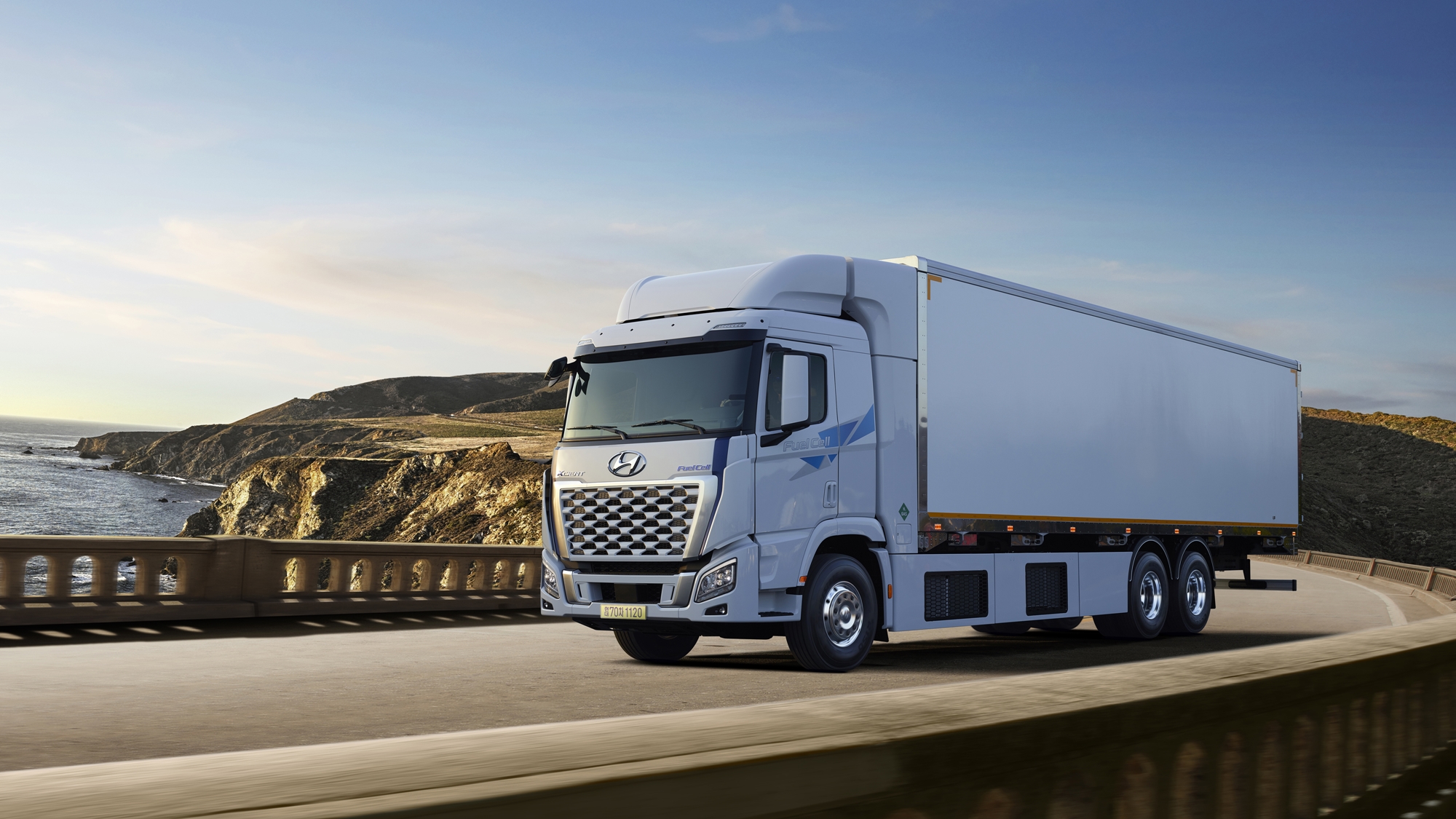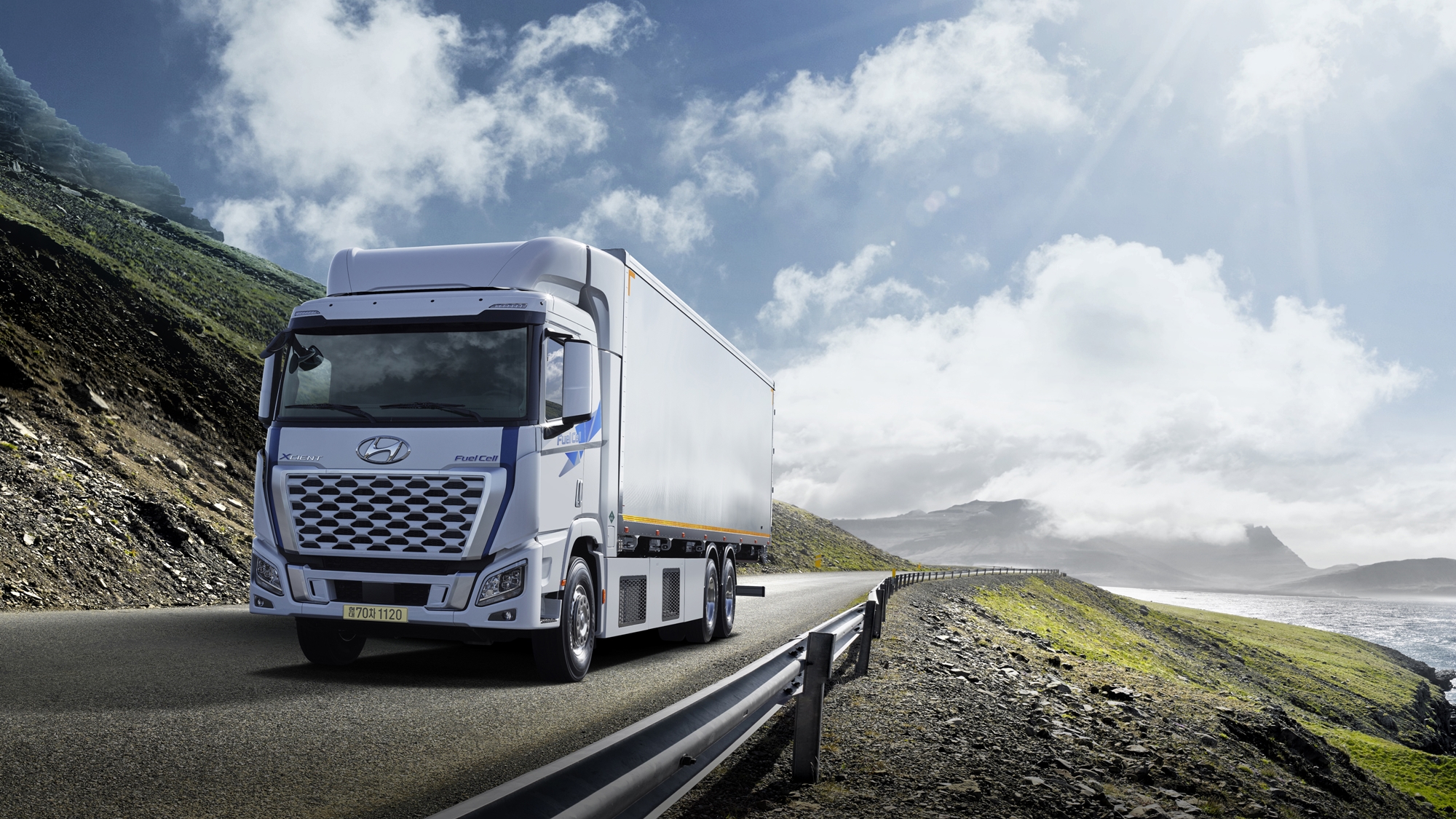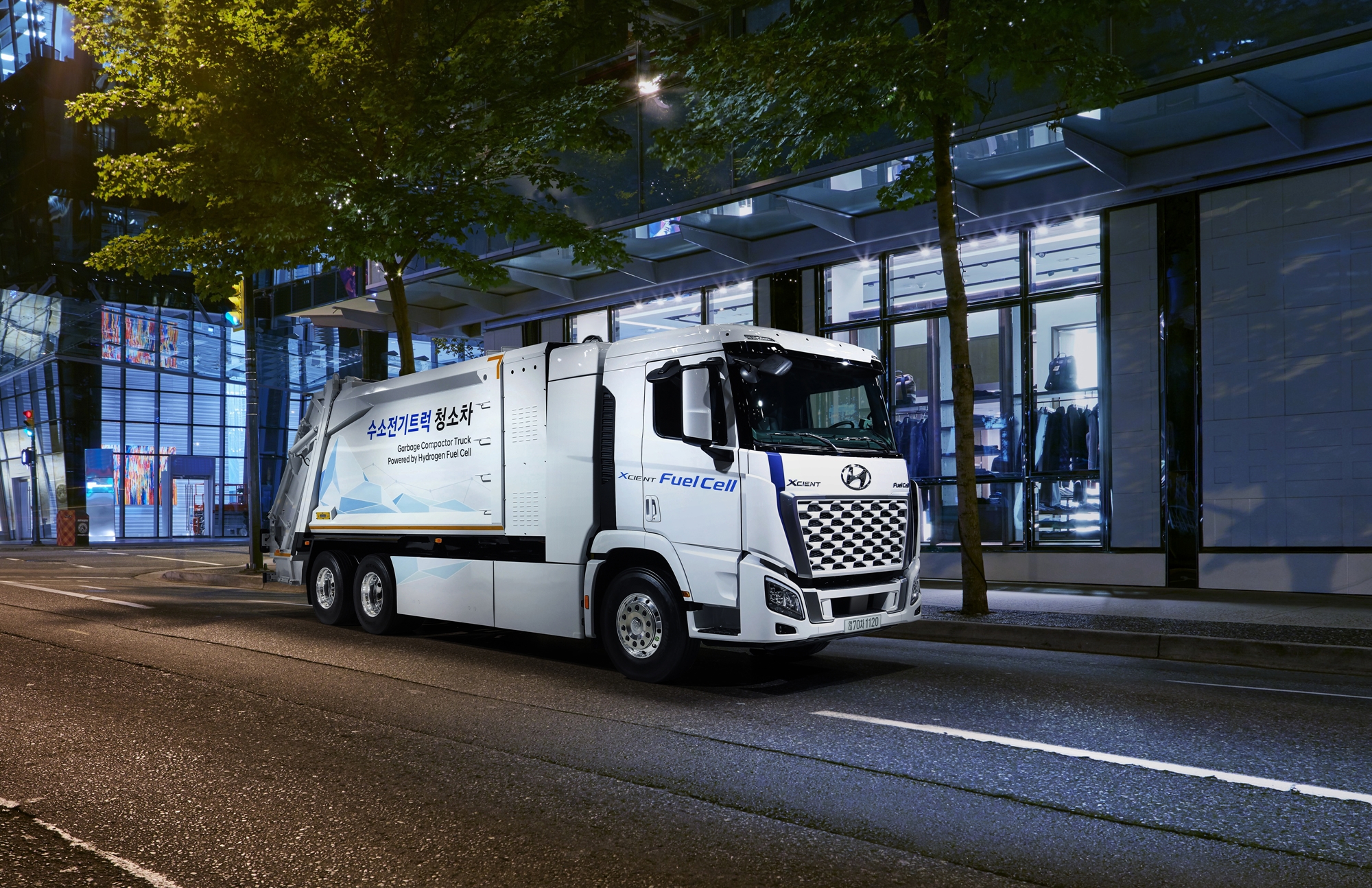
Hyundai Motor has begun sales of the Xcient hydrogen fuel cell truck in Korea.
The Xcient hydrogen fuel cell truck is the world’s first mass-produced large hydrogen fuel cell truck developed by Hyundai, which is gaining recognition for its eco-friendliness and excellent technology as it supplies the truck to major markets worldwide, including Switzerland and Germany.
This October, it achieved a remarkable record of exceeding a cumulative distance of 5 million km in just 2 years since its operation began in Switzerland in October 2020, becoming the world’s first and only mass-produced large hydrogen fuel cell truck to reach this milestone.
In Korea, an MOU was signed in May 2020 between the Ministry of Land, Infrastructure, and Transport and other entities to strengthen cooperation for the pilot project of hydrogen fuel cell cargo trucks, and a pilot project has been underway in the metropolitan area and Yeongnam region since December last year.
Hyundai has completed verification for suitability on domestic roads through the pilot project and has decided to advance the schedule for domestic sales, originally planned for 2023, to start deliveries to customers this month.

The advantages of the hydrogen fuel cell truck, leading the future of eco-friendly logistics, include that the fuel cell system is lighter than the batteries in electric trucks, enabling longer driving ranges. Moreover, it can be safely charged to 100% in a short time. Consequently, hydrogen fuel cell trucks are considered suitable for long-distance operation in large commercial vehicles.
The Xcient hydrogen fuel cell truck is equipped with a 350 kW high-efficiency motor, a 180 kW fuel cell stack (consisting of two 90 kW fuel cell stacks, based on complete stack output), and a 72 kWh high-voltage battery. It can achieve approximately 570 km of driving range on a single hydrogen charge.
Based on this, it boasts superior performance, delivering a maximum output of 476 horsepower and a maximum torque of 2,237 Nm, surpassing the diesel-equipped Xcient of the same class, which has a maximum output of 430 horsepower and maximum torque of 2,058 Nm.
In addition to applying a hydrogen fuel cell system, the vehicle has been optimized in key areas to reduce interior noise and vibration, providing a quieter driving environment.
Features include a ‘collision safety system’ that cuts off power and fuel during side collisions and rollover detection to prevent secondary accidents, an ‘automatic downhill cruise’ that activates the auxiliary braking system (retarder) to slow down during descents, disc brakes, and tire pressure warnings to enhance safety.
Hyundai offers 4X2/6×4 customized chassis cabs and a 6X4 wing body in Korea.
The sales price starts from 160 million KRW to 216 million KRW, reflecting the national subsidy of 250 million KRW and the local government subsidy of 200 million KRW. (※VAT included, actual purchase price and specifications may vary depending on the support status by the Ministry of Environment and local governments.)

Lee Sang-jin daedusj@autodiary.kr

